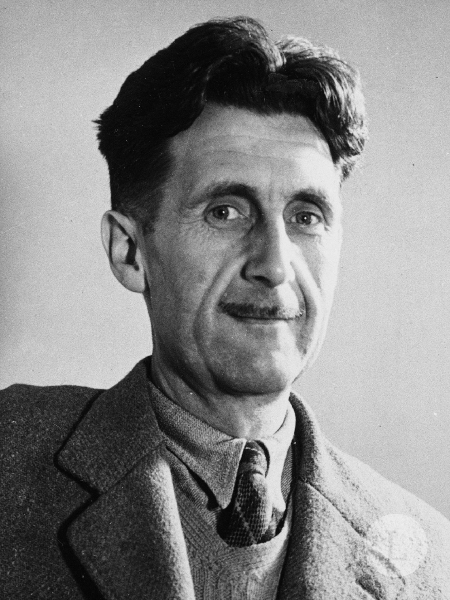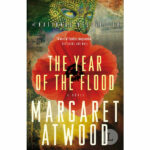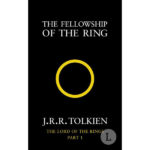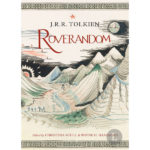George Orwell’s 1984, first published in 1949, is a seminal work of dystopian literature that delves into the grim world of a totalitarian regime, where individual freedom and privacy are virtually non-existent. The novel portrays a society ravaged by perpetual war, omnipresent surveillance, and the manipulation of history, language, and thought, as a means of maintaining the Party’s stranglehold on power. Through the eyes of the protagonist, Winston Smith, the reader is offered a disquieting glimpse into a world where resistance seems futile and hope for change, distant.
BOOK INFO
version: CLASSIC, EBOOK, AUDIOBOOK
number of pages: 300
literary movement: DYSTOPIAN
literary genre: DYSTOPIAN FICTION
1st edition: 1949
years of writing: 1947 - 1949
SUMMARY
At the core of Orwell’s narrative is the concept of totalitarianism, characterized by absolute control over every aspect of life. In the novel, the Party, led by the enigmatic figure known as Big Brother, exerts total authority over the citizens of Oceania. The populace is subjected to constant surveillance through telescreens, ensuring compliance and rooting out any hint of dissent. The Thought Police, the regime’s enforcement arm, ensures that even the most private thoughts are subject to scrutiny and punishment.
Language manipulation is another key theme in 1984, embodied by the creation of Newspeak, a language designed to constrict the range of human thought and eliminate any words or concepts that might be subversive or heretical. By altering the very structure of language, the Party aims to limit the ability of citizens to think critically or challenge authority, further solidifying its grip on power.
The manipulation of history and reality is also central to the novel, with the Party actively rewriting the past to suit its narrative. Winston Smith, employed in the Ministry of Truth, is tasked with revising historical records to reflect the Party’s ever-changing version of reality. This constant revisionism serves to undermine the individual’s sense of self and their understanding of truth, further isolating them and making them more susceptible to the Party’s control.
Throughout the novel, Winston grapples with the desire for personal freedom and the dangerous act of rebellion. His relationship with Julia, a fellow Party member, provides a brief respite from the oppressive regime, as they both indulge in acts of defiance, such as engaging in a forbidden love affair. However, their resistance ultimately proves futile, as they are captured, tortured, and indoctrinated, forcing them to betray not only each other but also their own humanity.
MAIN CHARACTERS
Winston Smith
The protagonist of the novel, Winston is a low-ranking member of the ruling Party in Oceania. He works at the Ministry of Truth, where he is responsible for rewriting historical records to align with the Party’s propaganda. Winston is an intellectual and secretly harbors rebellious thoughts against the regime. Throughout the novel, he seeks freedom, both physically and intellectually, and engages in acts of defiance against the oppressive government.
Julia
A young, spirited woman who works in the Fiction Department of the Ministry of Truth, Julia becomes Winston’s lover and partner in rebellion. She outwardly conforms to Party expectations but privately opposes the regime, engaging in forbidden acts of pleasure and resistance. Julia is pragmatic and resourceful, providing a contrast to Winston’s more idealistic and introspective nature.
O’Brien
A high-ranking member of the Inner Party, O’Brien is an enigmatic figure who initially appears to be a potential ally for Winston in his quest for rebellion. However, he ultimately reveals himself as a loyal servant of the Party and plays a central role in the capture, torture, and indoctrination of Winston and Julia.
Big Brother
The leader of the Party and the symbolic face of the regime, Big Brother is an omnipresent figure whose image is displayed throughout Oceania. Although his existence is never confirmed, he serves as a symbol of the Party’s power and authority, as well as a constant reminder of the surveillance and control exerted over the citizens of Oceania.
Mr. Charrington
An elderly shopkeeper who rents a room to Winston and Julia for their clandestine meetings, Mr. Charrington appears to be a kind and harmless figure. However, it is later revealed that he is a member of the Thought Police, and his shop serves as a trap to capture would-be rebels.
Syme
A co-worker of Winston’s at the Ministry of Truth, Syme is a brilliant but doomed intellectual who works on the development of the Newspeak dictionary. Despite his loyalty to the Party and his enthusiasm for Newspeak, Syme’s intelligence and ability to recognize the true purpose of the language make him a potential threat, ultimately leading to his disappearance and presumed execution.
Parsons
A neighbor of Winston’s and a loyal Party member, Parsons represents the typical citizen of Oceania. He is enthusiastic in his support of the Party, even reporting his own children to the Thought Police when they are overheard expressing rebellious thoughts. His character serves as a foil to Winston and highlights the extent to which the Party’s indoctrination has affected the general population.
Big Brother is watching you.
GEORGE ORWELL
TOP 10 POINTS
- Totalitarianism: 1984 depicts a society under the absolute control of a totalitarian regime, which suppresses individual freedom and autonomy in order to maintain its grip on power.
- Surveillance: The novel highlights the omnipresence of surveillance through telescreens and the Thought Police, which constantly monitor citizens to ensure compliance and quash any dissent.
- Language Manipulation: Newspeak, a language designed to limit the range of human thought, is a key theme in the novel, demonstrating how language can be used to control and manipulate people.
- Historical Revisionism: The Party actively rewrites history to suit its narrative, undermining citizens’ sense of reality and eroding their ability to discern the truth.
- Loss of Individuality: 1984 portrays a society where individuality is suppressed, and conformity to the Party is demanded, leading to a loss of personal identity and self-expression.
- The Power of Propaganda: Orwell’s novel explores the pervasive nature of propaganda, as the Party uses media and information control to maintain its authority and manipulate public opinion.
- Rebellion and Resistance: The protagonist, Winston Smith, struggles with his desire for personal freedom and the dangerous act of rebellion against the oppressive regime.
- The Role of Fear and Torture: 1984 showcases the use of fear and torture as tools for maintaining control and suppressing dissent, as seen in the brutal treatment of Winston and Julia.
- The Betrayal of Humanity: The novel illustrates the ultimate betrayal of one’s own humanity, as both Winston and Julia are forced to betray each other and their beliefs under the pressure of indoctrination.
- A Cautionary Tale: 1984 serves as a chilling warning of the potential consequences of unchecked power, the erosion of individual rights, and the dangers of totalitarianism, censorship, and the suppression of dissent.
AT THE END
1984 serves as a chilling warning of the potential consequences of unchecked power and the erosion of individual rights. Orwell’s masterful portrayal of a society stripped of personal freedom and autonomy continues to resonate in the contemporary world, as the novel remains a relevant and cautionary tale about the dangers of totalitarianism, censorship, and the suppression of dissent.
ABOUT WRITER

George Orwell, was an English author and essayist renowned for his influential novels 1984 and Animal Farm. Orwell’s works are characterized by their exploration of themes such as totalitarianism, social injustice, and the power of language. Through his novels and essays, Orwell left an enduring impact on literature and political thought.



